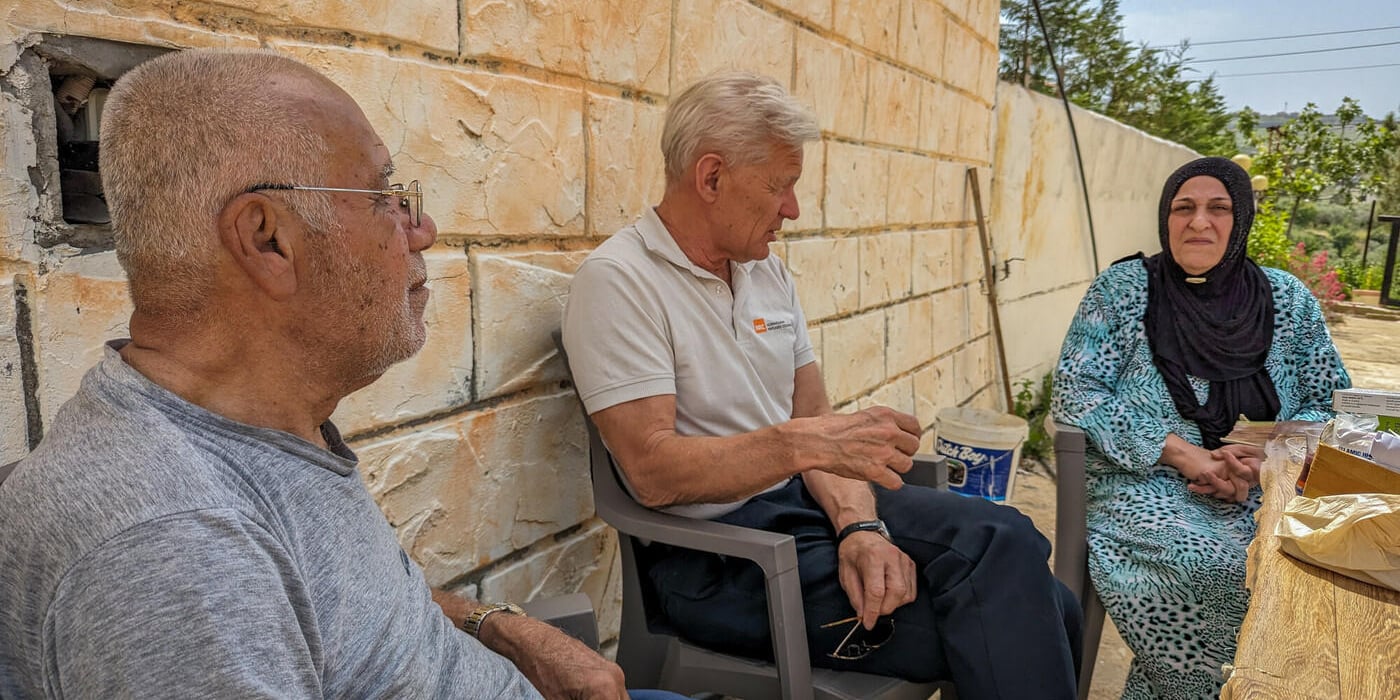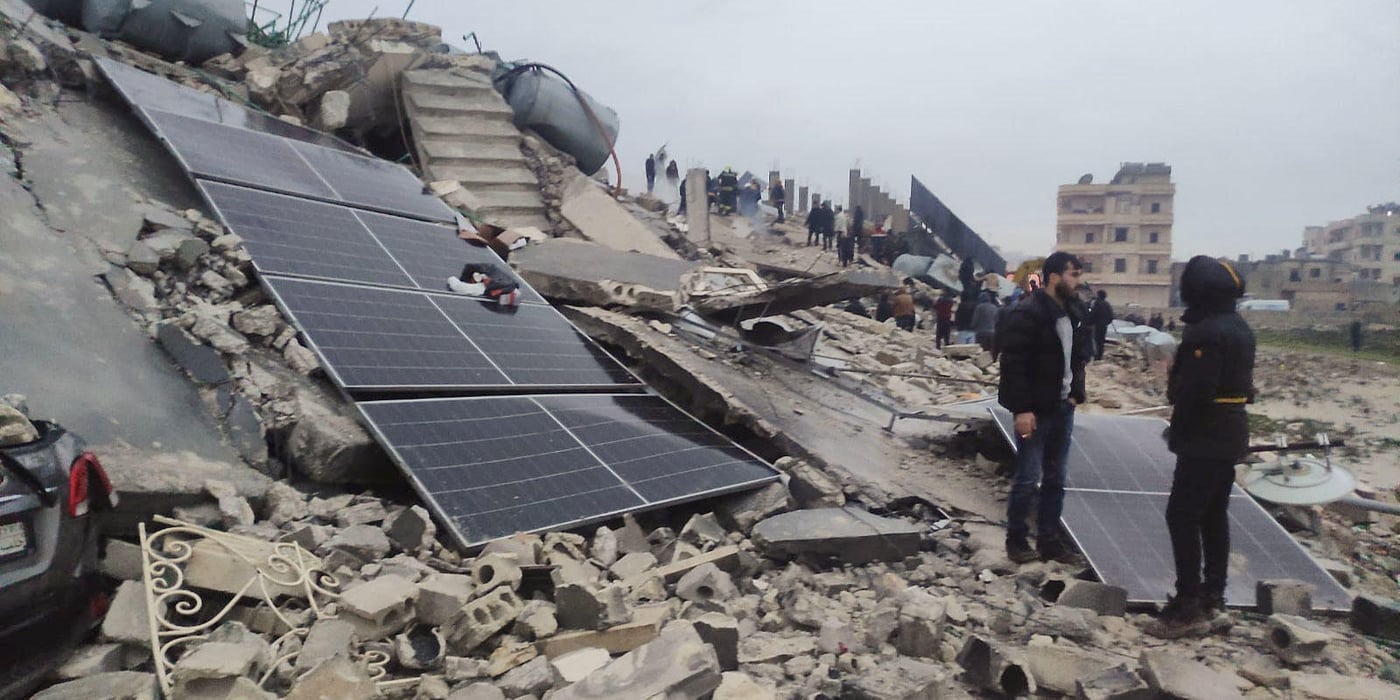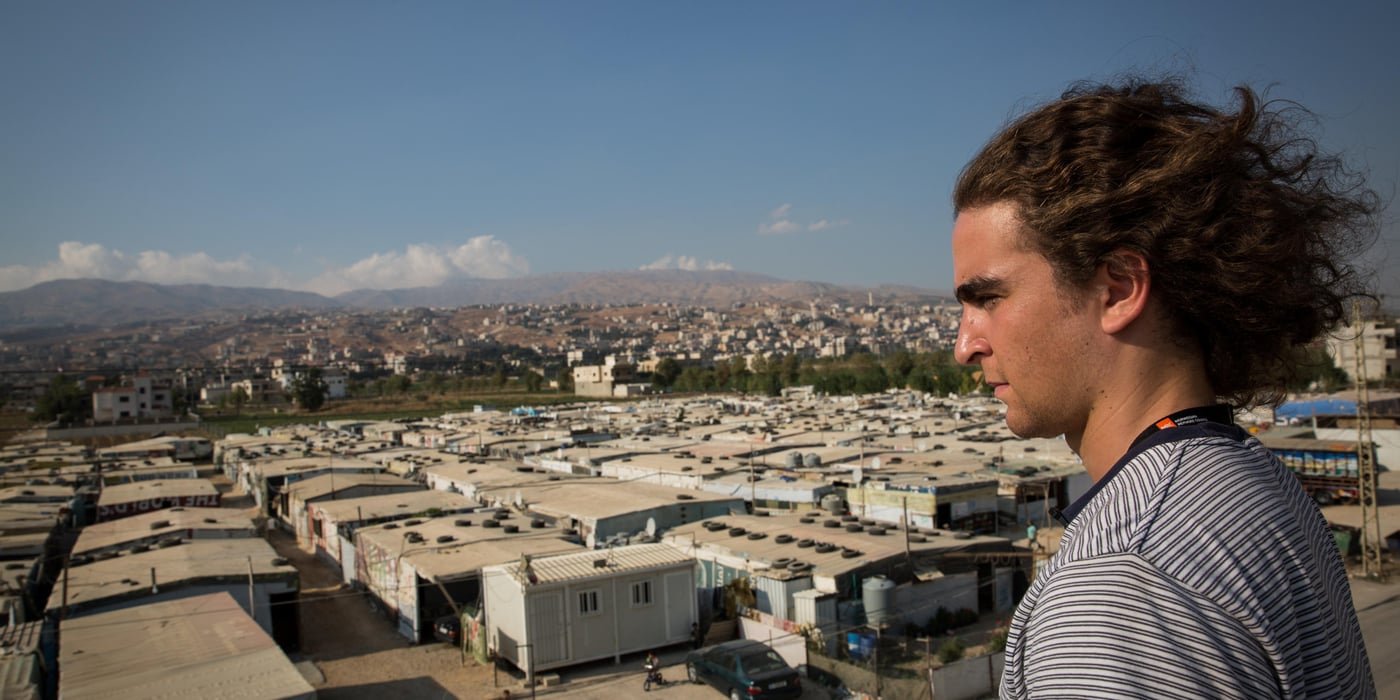
Samar har funnet trygghet i Libanon, men ikke så mye mer. Livet hennes er snudd på hodet: Hun har sluttet å studere jus og jobber for å forsørge familien. Om hun noen gang får tatt opp utdanningen igjen, har hun få muligheter til å praktisere yrket sitt i Libanon. Årsak: Hun er syrisk flyktning.
Fra krig til et liv på vent
Nittenårige Marlon finner ikke helt ordene, han er tydelig preget av det hun har fortalt. Ikke så rart, når det eneste man vet om krig, er det man har sett på TV eller lest på internett og i bøker.
Som de aller fleste hjemme i Norge.
Nå står hun foran ham – en som har kjent krigen på kroppen. Samar har nettopp fortalt Marlon om mannen hun elsket i Syria. Han var på besøk hos venner da huset de befant seg i ble bombet. Han ble drept.
– Samar hadde alt foran seg, hun skulle studere. Hun hadde funnet den personen hun virkelig elsket, og så blir alt helt motsatt. Den du elsker dør, blir drept!
Marlon er tydelig opprørt under innspillingen av første episode av serien Marlon’s Journey til Instagram TV.
I nettserien møter han ungdom på flukt fra noen av verdens største kriser.
Første reise gikk til Libanon. Landet er på størrelse med Rogaland fylke og har siden starten av Syria-krisen for syv år siden tatt imot omtrent 1,5 millioner syriske flyktninger.
Hun hadde alt foran seg, hun skulle studere. Hun hadde funnet den personen hun virkelig elsket, og så blir alt helt motsatt. Den du elsker dør, blir drept!Marlon Langeland
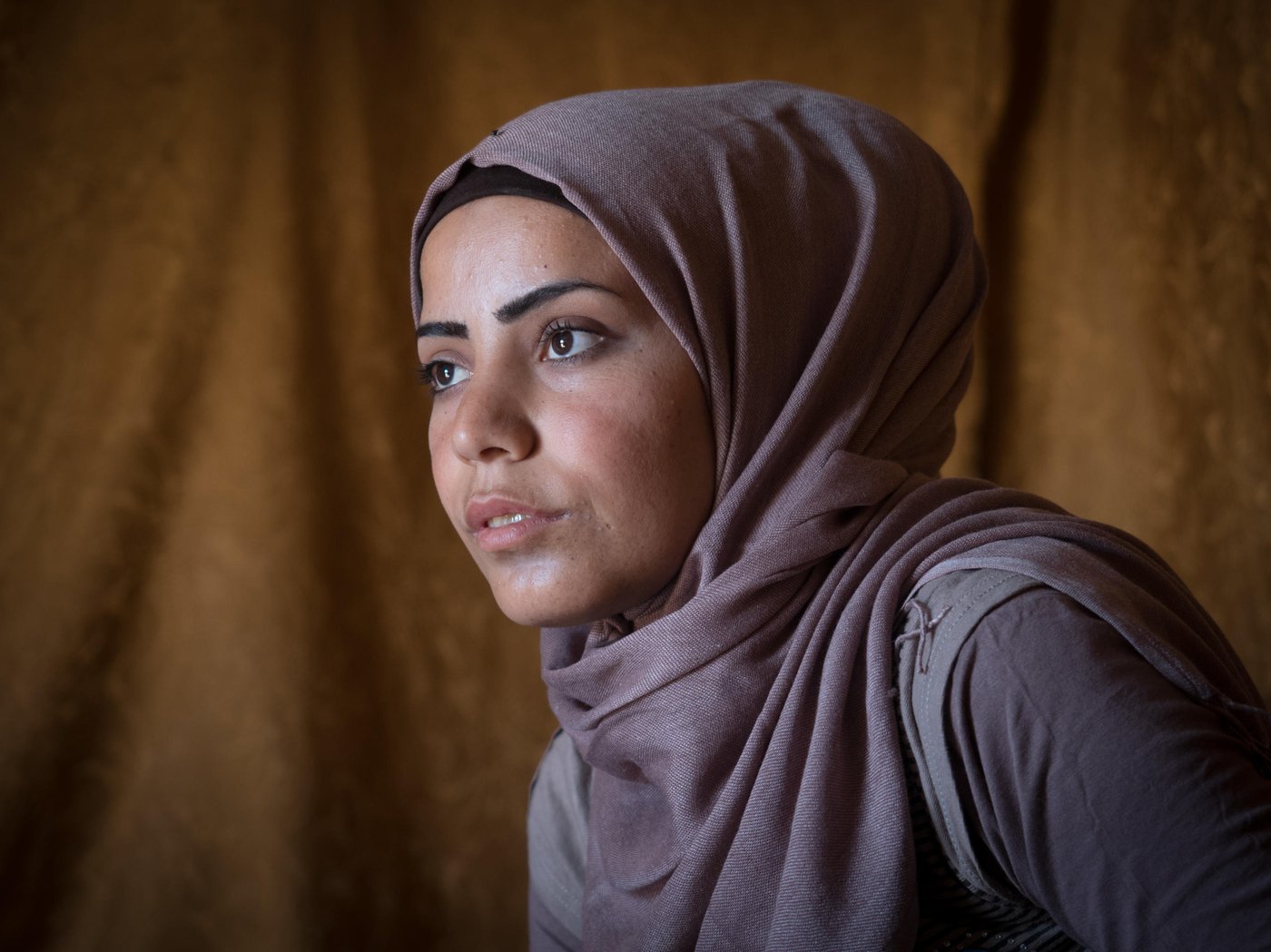
Under press: 1 av 4 er flyktninger
I dag er en fjerdedel av befolkningen i landet flyktninger. Selv om mange av dem føler seg trygge i Libanon, er fortsatt livet satt på vent. Så mange som 74 prosent av syriske flyktninger over 15 år i Libanon mangler papirer på oppholdstillatelse – det er for dyrt. Det betyr at de har få muligheter til å fortsette utdanningen sin, få seg jobb og starte et nytt, normalt liv i Libanon.
– Selv om du har utdanning, er det vanskelig å få seg jobb i Libanon om du er syrisk flyktning. De har få muligheter for å jobbe og kan bare ta arbeid innenfor jordbruk, bygg eller andre sesongjobber. De som mangler papirer på oppholdstillatelse, har begrenset tilgang til helsetjenester og utdanning, og de har ikke mulighet til å bevege seg fritt rundt, forteller Racha El Daoi, kommunikasjonsrådgiver for Flyktninghjelpen i Libanon.
Landet er under et enormt press for å dekke humanitære behov som utdanning, husly og mat til alle som har søkt tilflukt her. Nå lever hele 76 prosent av syriske flyktninger under fattigdomsgrensen.
Les mer om flyktningsituasjonen i Libanon og Flyktninghjelpens arbeid i landet her.
– Situasjonen for flyktninger i Libanon blir stadig verre syv år inn i den syriske flyktningkrisen. Derfor er det helt avgjørende med internasjonal støtte og hjelp for at de humanitære behovene i landet skal blir møtt, sier Racha El Daoi.
Men Samar nekter å la livet stoppe opp fordi hun er på flukt i et fremmed land. Det skylder hun mannen hun elsket, forteller hun. Han hadde villet at hun kjempet videre for å gjøre drømmene sine til virkelighet.
– Hun er et utrolig godt eksempel på hva en sterk person er. Hun har så mange odds imot deg, men fortsetter å jobbe, kjempe og passe på dem hun er glad i, sier Marlon.
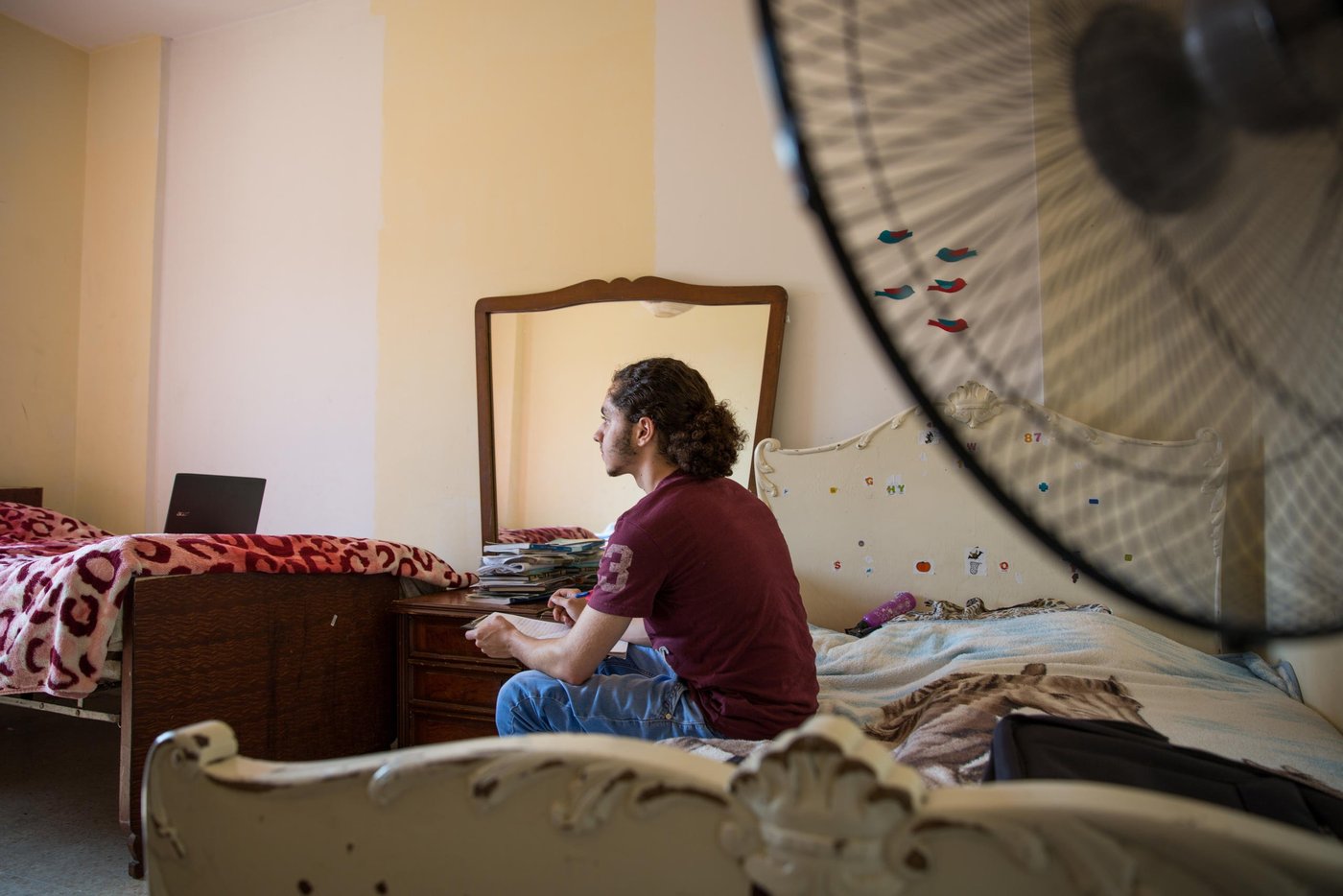
Drømmen som brast
Noen dager tidligere, på flyet til Libanon, snakker Marlon om faren som kom til Norge som politisk flyktning fra Chile. Han vil forstå familiehistorien sin bedre, vite mer om innholdet ordet "flyktning" faktisk fylles med. Er det slik han har sett det på TV? Hvor lenge er man på flukt? Hvordan bor man?
I Libanon forstår han at svarene er like mange som antallet flyktninger i verden. Mens Samar bodde i en uoffisiell leir en time utenfor Beirut, møter Marlon Osama i en anonym boligblokk i den libanesiske hovedstaden.
De har begge stort, krøllete brunt hår, de strekker seg like langt fra bakken og går med samme vuggende rytme i stegene. Marlon ler og kommenterer likheten.
Osama bor med ni andre syriske flyktninger i den lille leiligheten. De har klart å skape seg et fellesskap, går på skole og lager mat sammen. Holder hverandre gående.
– Vi må hjelpe hverandre, studere, bli bedre, sier han. Men for øyeblikket er ikke fremtidsutsiktene lyse. Osama og familien har nettopp fått avslag på søknaden om opphold i et tredje land – et "nei" til drømmen om en trygg fremtid, en hverdag med jobb, studier og mulighet til å leve som normalt.
Osama og familien er en del av en dyster statistikk. Få mennesker kommer seg gjennom nåløyet i kvoteflyktningordningen, selv om løsningen er det eneste lovlige og trygge alternativet for å få opphold i et tredje land.
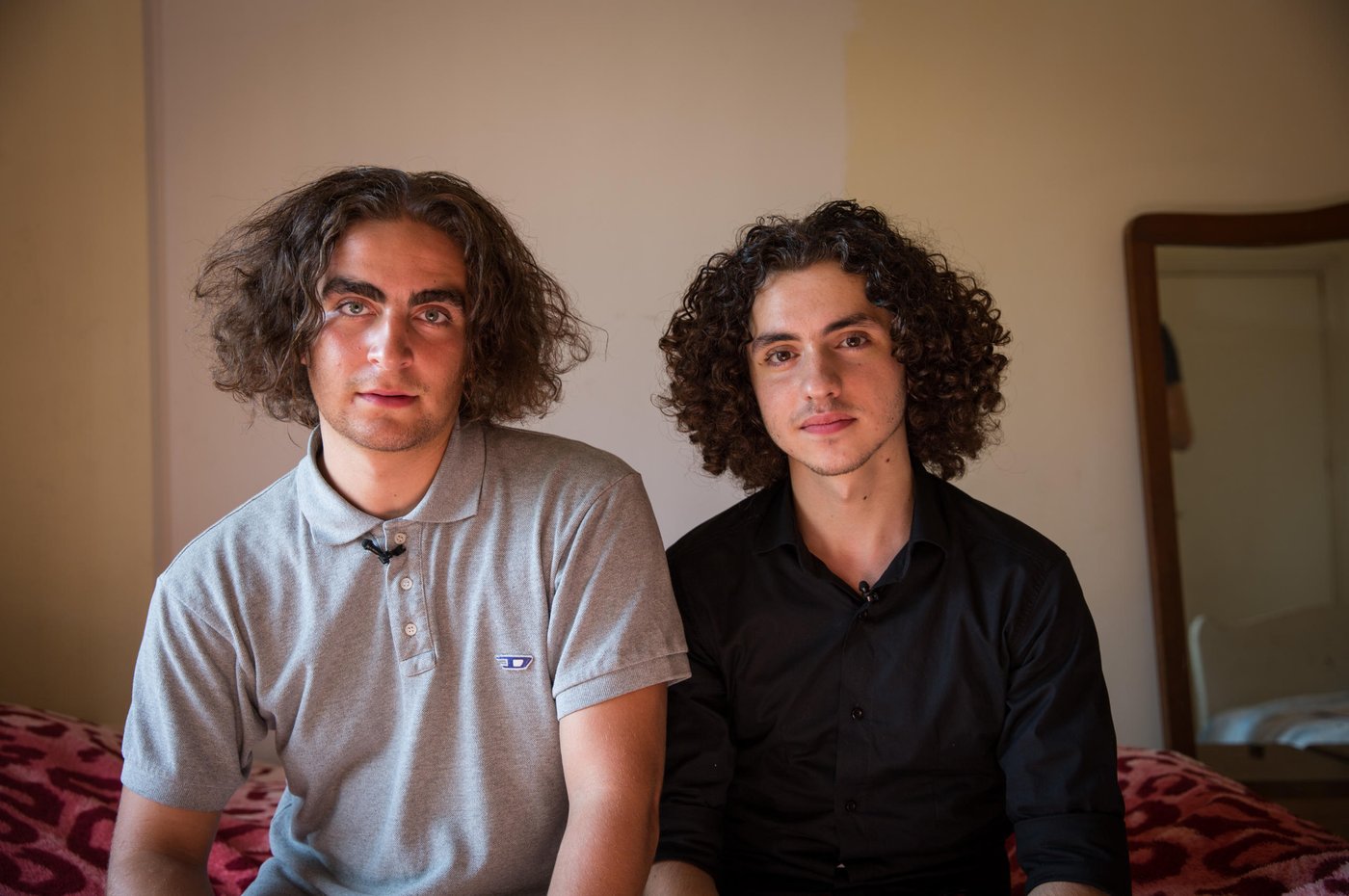
– Du er nødt til å gjøre noe for å overleve
Mot slutten av besøket i Libanon, har Marlon vanskelig for å sortere alle inntrykkene. Det ligner ikke noe han har sett eller hørt om før. Samtidig er det oppløftende å se at ungdommene han møter har en viktig ting til felles:
– Uansett hvor du er, så er du nødt til å gjøre noe for å overleve eller drive livet videre. Det er akkurat det jeg har sett her. Folk som jobber med det de har og som nekter å gi opp.
Racha El Daoi mener det er viktig og inspirerende at ungdom som Marlon bruker av tiden sin på å skape oppmerksomhet rundt en spesielt sårbar gruppe som ungdom på flukt.
– At Marlon gjør dette, gjør at vi kan skape bevissthet rundt situasjonen flyktninger lever i. Vi kan heve kunnskapen om Syria-krisen og hvordan den påvirker ungdom. Spesielt siden syrisk ungdom pleide å ha et ganske likt liv som norsk ungdom. Et liv med drømmer, ambisjoner, håp og planer for fremtiden. Forskjellen er at krig har tvunget dem på flukt.


